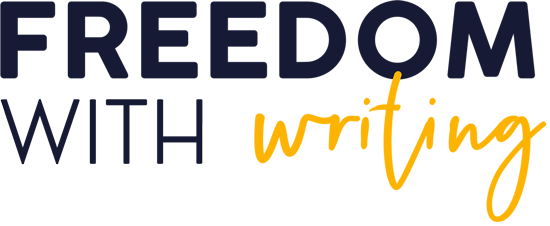Siri Carpenter is a longtime science journalist, editor, and co-founder and editor-in-chief of The Open Notebook (TON), a U.S.-based nonprofit organization whose mission is to help science journalists improve their skills.
Here she is in a conversation with Viney Kirpal, health and personal essay writer.
Viney Kirpal (VK): Lovely to have you here, Siri! How about telling us why science writing as a niche?
Siri Carpenter(SR): I run an organization called The Open Notebook, whose mission is to help science journalists improve their skills. I didn’t start out in science writing but in psychology. During grad school, I discovered that although I loved science, I didn’t want to devote my career to just one area of study. I really liked to write, so when I discovered there was such a thing as science writing, I immediately knew that that’s what I wanted to do.
VK: New writers get confused between a research article and a science article in popular publications. How would you distinguish between them?
SC: Both need to convey information about science and scientific research in a clear, accurate, and meaningful way to their audiences; otherwise, why bother? But scientific research papers and journalistic writing do tend to read quite differently. For one thing, one of the main purposes of research articles is to inform other scientists about the results of research so that the scientific community can build on it. As a result, the articles must contain detailed information about the methods in which studies were conducted and analyzed, as well as a lot of references to others’ research—context that’s important for interpreting new results. And scientific articles tend to include a good deal of technical language that might make perfect sense to experts within that field, but that would be impenetrable to non-experts.
In contrast, science writing in popular publications intended for a wider audience is less technical and more conversational. Its purpose isn’t to describe how a study was conducted so that someone can replicate it; it’s to describe a study—or a field, or person, or debate, or problem, or potential solution—in a way that tells a story about science. So articles for popular publications tend to balance data with stories. By our nature, humans are natural storytellers, and we respond best to information that is framed in terms of a story. While hard data are important—and of course need to be conveyed accurately—it’s stories that touch people and cause them to care and remember and, at times, act on what they’ve read.
VK: Editors have different takes on a freelance writer’s pitch? What’s yours?
SC: I think a really important concept for both freelancers and editors to keep in mind is that a pitch is really just the start of a conversation. If someone pitches me a story idea and I like it but don’t have space to commission it at that time, or if I find it interesting but the angle or approach doesn’t seem quite right for us, I’m happy to have further conversations with the writer, either about that idea (or a variation on it), or about something else altogether. I think most editors feel this way.
In terms of what I look for in pitches, specifically at The Open Notebook, there’re a number of things. First of all, I’m looking for stories about science journalism craft that are fresh and important such as reporting on scientific controversy, or this one on how to handle situations where a scientific source may have a conflict of interest. (This might be a good place to mention that I get a lot of pitches for stories about this or that area of scientific research, and I always say no to those pitches because we don’t do stories about science, we do stories about science journalism craft.)
Second, I like pitches that make it clear how the writer plans to approach the story: What are the central questions that they’ll address or arguments they’ll make, and what kinds of sources do they plan to interview? I also look for some sense, even if preliminary, that there are interesting and worthwhile answers to those questions that add up to a story that’ll actually be useful to our community of science writers … something that’ll suggest tools and strategies people can apply to their own work.
Third, when I’m considering pitches I like to understand something about the person’s background and level of experience. We often assign stories to early-career science journalists who don’t have a lot of experience and/or whose first language isn’t English, and we view mentoring early-career writers as a key part of our mission. But in order to assign a story with confidence, we want to have as full an understanding as possible of what that person’s skills and strengths are and where they might need more support.
VK: That’s heartening to know! So, then, what makes a science article stand out for you?
SC: That’s a great question—and a tough one to answer! On one level, it’s easy enough: A good science article is something that’s on a topic that’s interesting to me, or that I know is important. It’s accurate, thoroughly reported, and written clearly and in a way that engages my curiosity and emotions. Those are kind of the keystones of good science journalism. As for what makes an article really stand out … that’s harder to pin down, I think. For me, in some cases it might be that the writer had access to truly unique sources or information; or it might be that they brought a really deep level of analysis and insight, or a fresh and surprising angle on a well-trodden topic; or that their writing style and voice are especially elegant or evocative, or that they’re very funny. Probably what I love most about some of the best science writing is that it exposes me to new ideas and perspectives and makes me think hard.
VK: Any takeaways for the readers of FWW that could help enhance their writing?
SC: I think one of the hardest things about being a freelancer is that it inevitably involves experiencing a lot of rejection, which can leave you feeling demoralized and uncertain about whether there’s something you should be doing differently, or even whether you’re cut out for being a journalist. As someone who was a freelancer for my entire career before becoming a full-time editor, I feel a deep, deep kinship for anyone who keeps putting themselves out there over and over again, trying to grow in their skills while also making a living—often with very little feedback about why a given pitch was not successful. So first of all, I just want to say that getting a lot of rejections is not a sign of failure—it’s just a sign of being a freelance journalist. That doesn’t mean you have to like it! But you are not alone.
Second, I would encourage people to seek out people from within your network who can form a supportive community for one another—people who can gather online to talk about story ideas, help each other improve pitches, celebrate victories, and so on. Writing is often a lonely business, so anything you can do to find like-minded communities for yourself is likely to help. If there’s a local or regional science writing organization you can become involved with, do that. Consider joining the (U.S.) National Association of Science Writers as an international member, if you’re able. Attend science writing conferences (in-person or virtual) whenever it’s feasible for you. Sign up for free webinars and such on science writing, both to learn new things and to meet new people.
VK: Thanks, Siri! That’s a lot of helpful guidance delivered with empathy for the budding writer. It was awesome having you speak with us all.
The Open Notebook has published hundreds of articles focused on science journalism craft, and a book, The Craft of Science Writing(2020). The organization offers free online skills courses through its Science Journalism Master Classes program, and runs several mentoring programs for science journalists, including its early-career fellowship program. Those interested in writing for TON, please read their submission guidelines guidelines.

